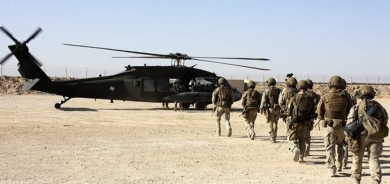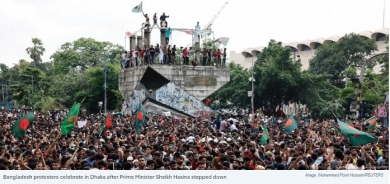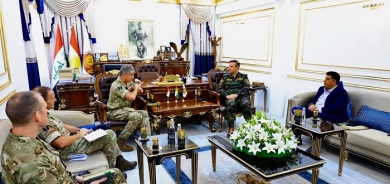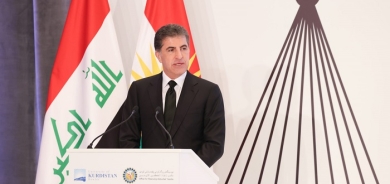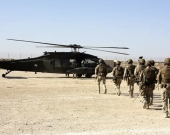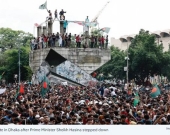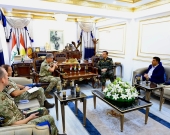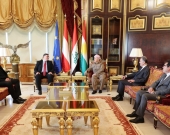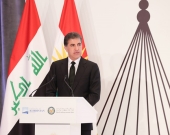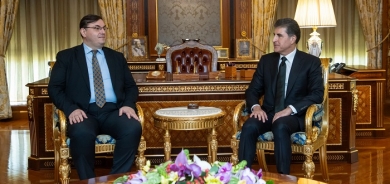Iraqi Kurds Woo Investors Amid Strife

As the fight against Islamic State rages in Iraq, the semiautonomous Kurdistan region is wading into a battle of different sorts. Its government is in London to woo international investors for a new bond issue, the latest among fringe emerging markets.
The Kurdistan Regional Government is planning to raise cash through a bond sale, its first ever, as it seeks to plug a gaping hole in its finances thanks to weaker oil-sale revenues amid an increasingly costly battle with the radical militants.
The KRG is holding fixed-income investor meetings this week through Friday in London, organized by Deutsche Bank and Goldman Sachs International, to gauge appetite for the energy-rich region’s debt, and may issue a bond after that. They are meeting big institutions and frontier-market investors, and will complete the size of the bond depending on demand.
The bond issue seeks to fulfill the government’s budget deficit, which is expected to reach $5 billion this year for the second year in a row, said Ezat Sabir, head of the investment and economy committee in the KRG’s regional parliament.
KRG’s bond plan comes at a time when global investors anticipate a rise in U.S. interest rates, which could trigger a selloff in riskier emerging-market debt. Some of the riskiest sovereigns in the world—such as Armenia, Bulgaria and Ecuador—have sold debt in recent months, finding takers for the high yields they offered amid record low global interest rates.
The KRG doesn’t have a credit rating, which usually helps investors make a decision, and is partially under occupation of Islamic State. But some bankers and government officials are still optimistic.
They point to the Iraq 2028 bond that trades at around 8%—more favorable than the yields on debt issued by countries such as Venezuela, Greece and Ukraine. And the country’s economy is underpinned by oil. Islamic State, despite its advances, is still far away from the heart of oil production in southern Iraq. The Iraqi central government, meanwhile, is also looking to raise debt through its own bond sale.
“We are optimistic about the future of our future economy because we have huge reserves of gas and oil,” the KRG’s Mr. Sabir said.
Proceeds from the planned bond sale will be used to invest in the region’s infrastructure—including roads, dams and hospitals—as well as capital projects, giving the KRG greater control of its finances. These types of projects require longer-term funding through instruments such as bonds, which the KRG can now issue under a new debt law that was passed this month.
Erbil, capital of the northern Iraqi region, has struggled to meet the needs of the yearlong fight with Islamic State and the civil war in neighboring Syria—conflicts that have burdened KRG with more than 1.4 million displaced people. The KRG fighters known as “Peshmerga” have also played a major role in the fight against the extremist group that took over Iraq’s second-largest city of Mosul last year and pushed to within an hour’s drive of Erbil.
Kurdish politicians first considered the bond issue to address a budget shortfall caused by a dispute with Baghdad over who would market KRG’s oil resources. The two sides reached a deal in December under which Erbil provides Baghdad with 550,000 barrels of oil a day in return for about $1 billion in monthly budget payments.
The Kurds earlier this month claimed delays in the oil payments from Baghdad, but the Iraqi central government said it disagreed with the KRG’s estimates of payments due.
The Wall Street Journal


